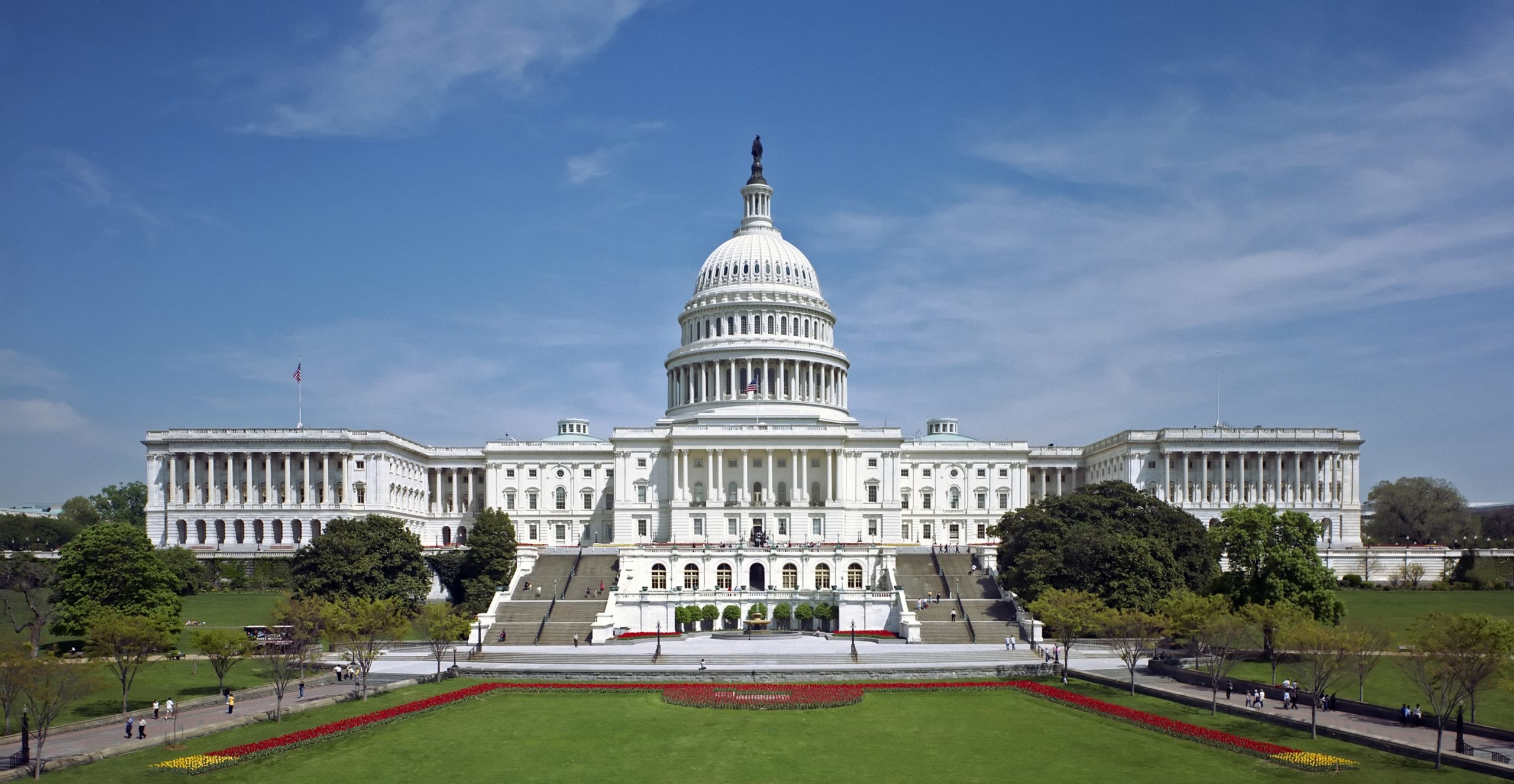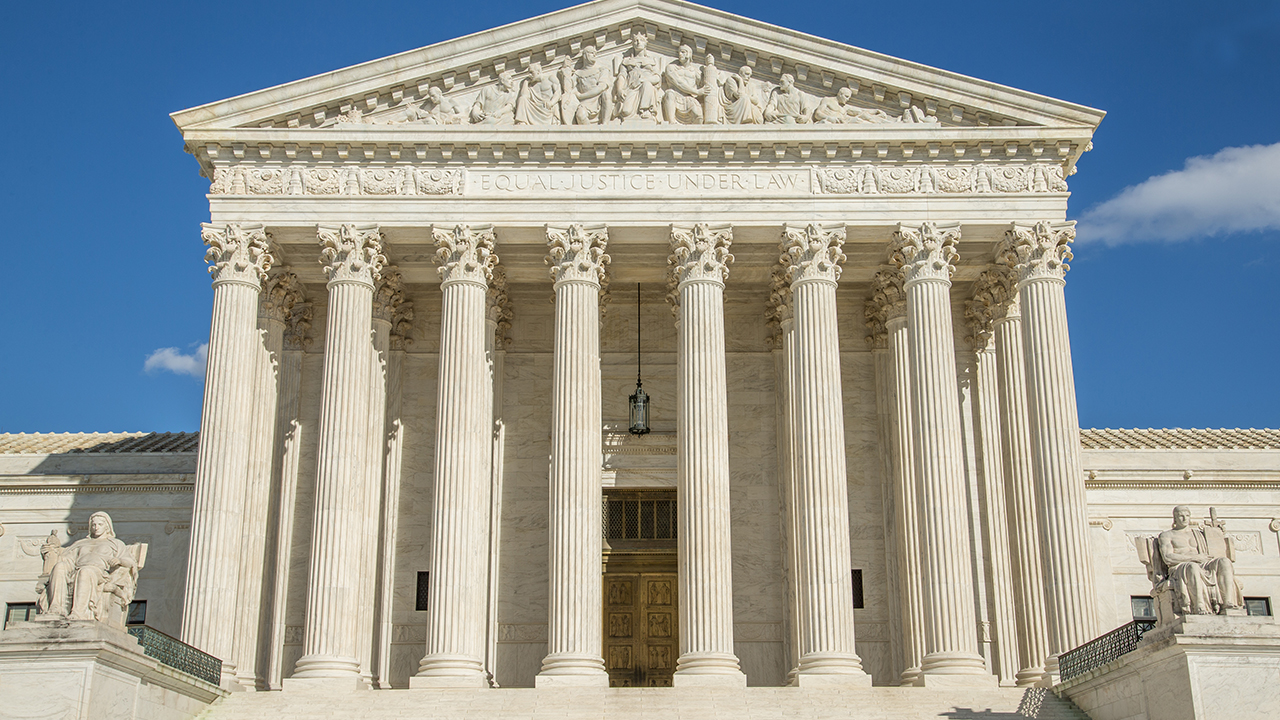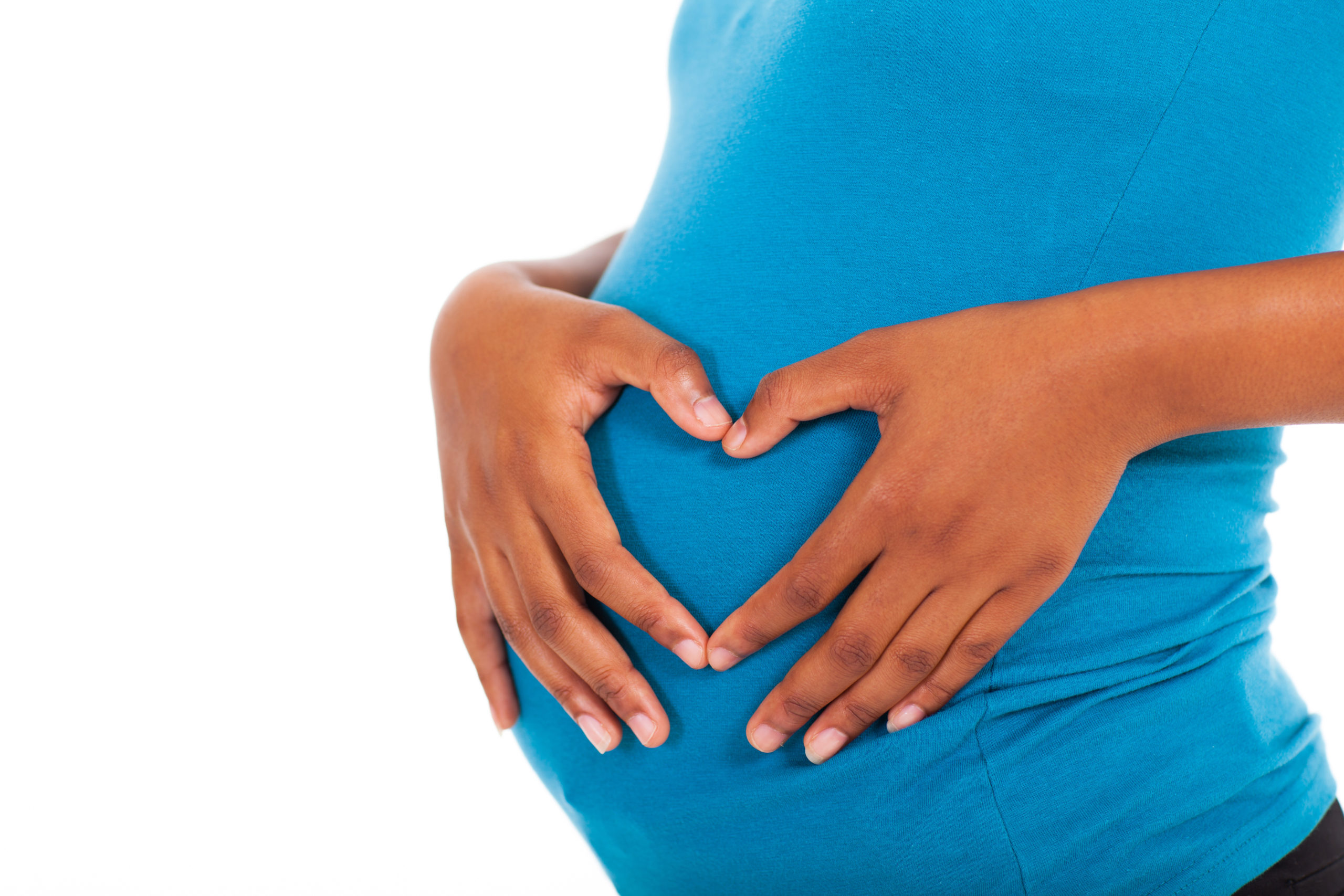Abortion rights, women of color, and LGBTQIA+ people are under attack. Pledge to join us in fighting for gender justice.
Your Right to Abortion Before the Supreme Court: What You Need to Know June Medical Services v. Gee
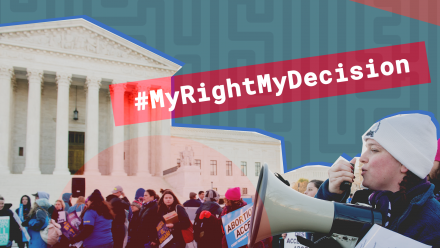
On Friday, the Supreme Court announced that it will hear oral arguments in June Medical Services v. Gee. Here’s a quick overview of what you need to know.
What case is about:
June Medical Services v. Gee is a challenge to a Louisiana law that requires abortion providers to have admitting privileges at a local hospital. As you may have heard, these laws have nothing to do with patient safety or best medical practices; they are intended to shut down clinics and eliminate abortion access.
Doesn’t this sound familiar?
In a word, yes.
The Louisiana law is identical to one of the Texas laws at issue in Whole Woman’s Health v. Hellerstedt. In that case, the Supreme Court ruled in 2016 that the Texas law was unconstitutional, based on evidence that the law was medically unnecessary and creates an undue burden to accessing abortion care. The Louisiana law is the same type of law that is designed to shut down clinics.
That’s why when the district court in Louisiana considered the facts – that abortion is extremely safe and admitting privileges have no medical benefit – they struck down the law under the Whole Woman’s Health precedent. But then the Fifth Circuit went totally rogue and – openly disregarding Supreme Court precedent – reversed the lower court’s decision. In the Fifth Circuit decision, the court went to great lengths to revisit the evidence and reverse the lower court’s finding of facts (which appeals courts are not generally permitted to do). It was an outrageous misapplication of legal precedent and blatant disrespect of the rule of law.
Given the precedent under Whole Woman’s Health, the Court’s decision should be easy…right?
Yes and no.
Like I mentioned, the Court decided this issue just three years ago. Since that time, the facts on admitting privilege laws haven’t changed.
But what has changed is the landscape of abortion restrictions and our courts.
There has been a coordinated effort from the anti-abortion movement to end abortion and strip away our rights for years: since 2011, more than 470 abortion restrictions have been enacted by state legislatures. And in the last two and a half years, President Trump has stacked the federal courts with judges that are hostile to civil rights, including abortion, confirming over 150 federal district and appellate judges, and two Supreme Court justices. The influence of these judges will have a profound impact on our fight for gender justice. And it’s already apparent in June: when the Supreme Court blocked the Louisiana law from taking effect earlier this year, Justices Kavanaugh and Gorsuch were among the justices that would have allowed it to go into effect, shuttering clinics and decimating abortion access in the state.
With this influx of Trump judges, the anti-abortion movement has felt more emboldened than ever to advance unconstitutional abortion restrictions and bans that could overturn or severely gut Roe. June will be the first Supreme Court abortion case to test the waters with Justices Gorsuch and Kavanaugh on the bench, but with states racing to see who can get the next abortion case before the Court, it won’t be the last.
What’s at stake?
So. Much.
Access to abortion in Louisiana – and throughout the U.S. – is at stake. Abortion access in Louisiana is already severely limited, and some people who need an abortion can’t get one. In 1992, there were 17 abortion clinics in the state. But now, largely due to the challenging climate for abortion providers in Louisiana, including numerous abortion restrictions, only three clinics remain.
If the Court doesn’t strike down the law, even more people will be left without abortion care, denying them their constitutional right to abortion. The law will shutter the few Louisiana abortion clinics that exist and obliterate access to abortion in Louisiana. The state would be left with only one abortion clinic to provide care for the nearly one million women of reproductive age who live in the state.
This untenable situation will cause longer wait times and further distances for appointments, leading to higher costs for travel, transportation, and time off work. The harms imposed by this law will fall hardest on those who already face multiple barriers to care, such as the overwhelming majority of Louisiana abortion patients who are struggling to make ends meet, the 70% of Louisiana abortion patients who are people of color, people living in rural areas, and people who already have children.
Allowing the Louisiana law to go into effect would have dire implications for access to abortion throughout the U.S. too, even if the Court doesn’t directly overturn Roe. The Court doesn’t need to overturn Roe to severely undermine it. In fact, this strategy is just as likely to spell disaster for reproductive rights. Justices could claim to uphold the right to abortion, while rendering that right meaningless. The Court has done this before, and as a result, states have passed hundreds of abortion restrictions. If the Court further guts the protections in Roe and allows the Louisiana law to stand, they’d be giving state lawmakers the green light to pass laws that decimate abortion access in their states, while eliminating the legal protections we have to challenge those restrictions. This would bring the end of Roe as we know it.
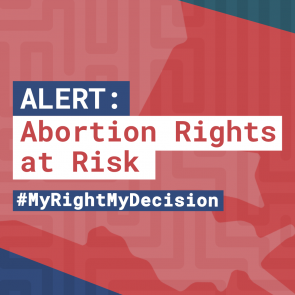
The rule of law is also at stake.
Anti-abortion politicians made it clear that they passed the Louisiana admitting privileges law because it would close clinics. And even though the trial court’s finding of facts showed that the law’s burden far outweighed any benefit, the Fifth Circuit flouted the rule of law and ignored precedent by overturning that decision. Now it’s up to the Supreme Court to uphold the rule of law, which is critical not only to protect our constitutional right to abortion, but to make clear that other precedent will also stand.
And yet, there’s more.
The Court will also take up the question of whether abortion providers have third-party standing to assert their patients’ constitutional right to abortion. Courts have permitted parties to assert a third party’s constitutional rights when they are the subject of a statutory penalty. So, for example, an abortion provider could bring a challenge to an admitting privilege requirement on behalf of their patients because it is the provider who would be penalized for failing to have those privileges. A change to abortion providers’ standing to challenge abortion restrictions on behalf of their patients would be a massive shift to how abortion restrictions are challenged. Finding plaintiffs to challenge abortion restrictions would be extremely challenging, particularly before the restrictions went into effect. This would likely mean that clinics close (and never reopen) while a restriction goes into effect, or that a pregnant person loses the opportunity to obtain an abortion.
What’s going to happen?
This should be a straightforward decision. For over forty-five years, and most recently in Whole Woman’s Health, the Supreme Court has made it clear that the Constitution protects an individual’s right to decide whether to have an abortion. Under their own precedent under Whole Woman’s Health, there should be no other possible outcome but for the Supreme Court to strike down the Louisiana law.
That said, the Court could have issued a summary reversal to strike down the Louisiana law without hearing oral arguments. Their willingness to hear oral arguments – on both the Louisiana law and the third-party standing question – could indicate that they are considering how to limit abortion access.
What can we do?
Abortion providers and those trying to access abortion need your support now more than ever. While the decision in June sits with the Supreme Court, there are things that can be done to protect our right to abortion and expand access. State and federal lawmakers can step in to ensure that access to abortion is a reality for everyone, no matter where they live or how much money they make. You can help by contacting your lawmakers to make sure they know that you support abortion access.
You can also lend support by thanking your local abortion provider or by donating to your local abortion fund.
#MyRightMyDecision



